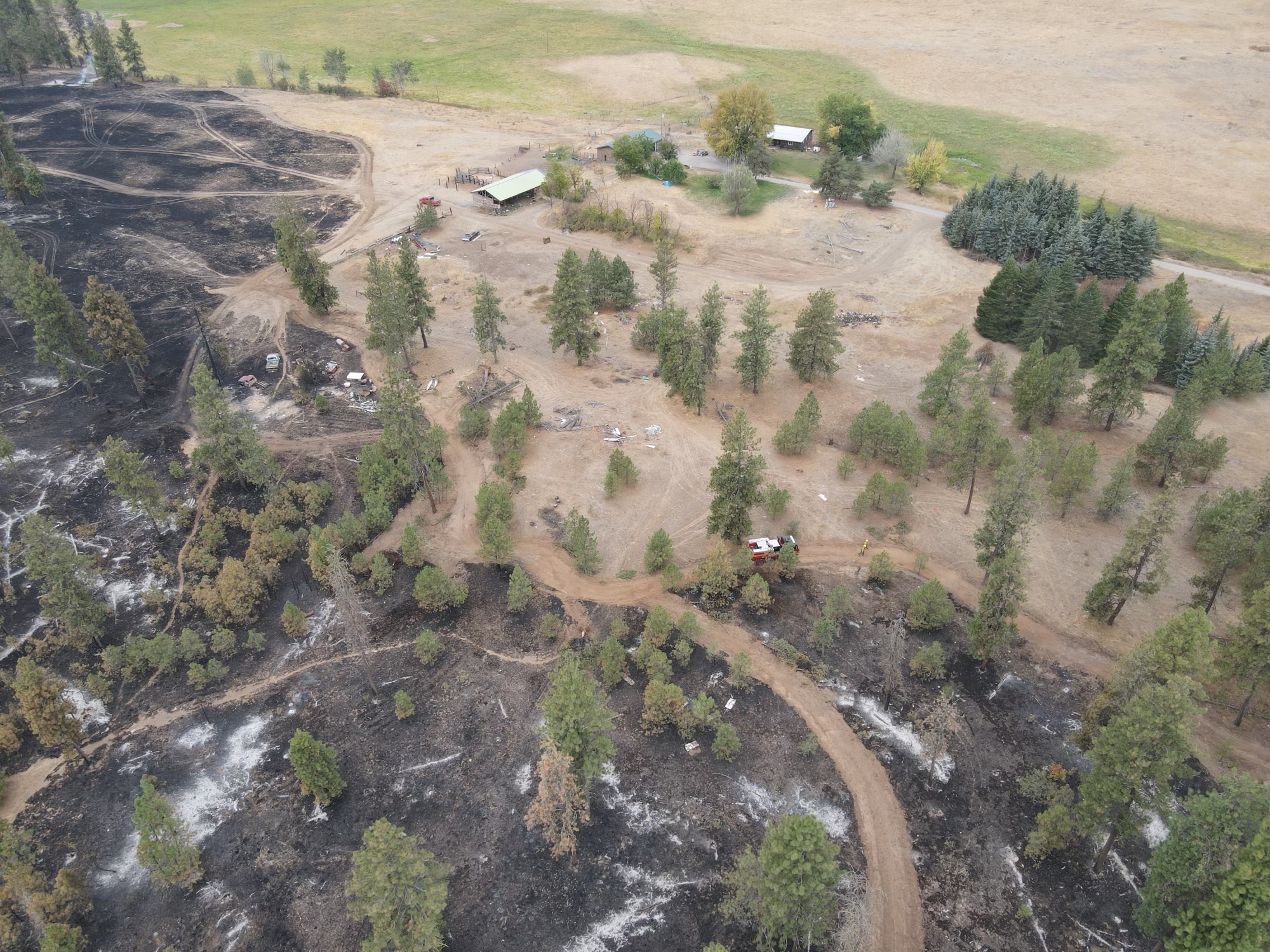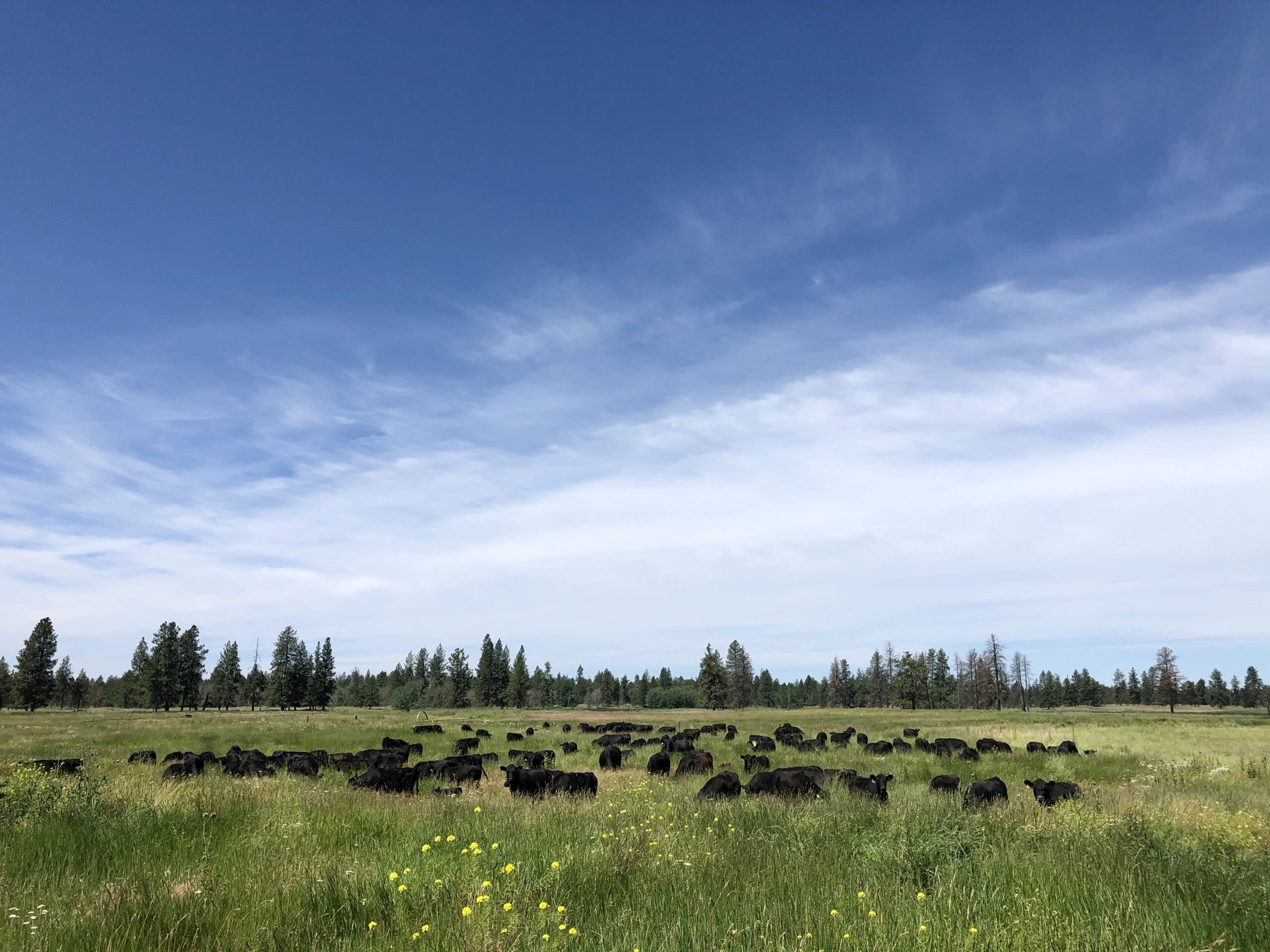Fire Does Not Respect Fence Lines: Why Community is Key for Resilience
The following piece was written by guest blogger Beth Robinette. Beth is the fourth generation of her family to work on the Lazy R Ranch. After completing her studies at Western Washington University and earning an MBA at Bainbridge Graduate Institute, a small independent business school dedicated to using the tools of business for environmental and social good, she returned home in 2010 to manage the ranch with her dad, Maurice. In 2015, she became the first (and only) second-generation certified Holistic Management educator. Beth is also the co-founder of LINC Foods, a worker-farmer-owned cooperative food hub based in Spokane, and a co-founder of Roots of Resilience. and Additionally, she co-facilitates the New Cowgirl Camp.

Beth, her family, and local partners are working with AFT to co-host a learning circle based on their experiences with fire on the ranch and in the region. Beth was generous to share the following story with us. We hope you enjoy!
As I write this, it is August 23rd —one year and one week since the Gray Fire broke out, burning 10,000 acres, destroying over 200 homes in Spokane County, and burning half of our family ranch. A soft rain is falling, an unexpected late summer blessing. The smell of soil microbes coming to life is intoxicating —a far cry from the smoldering remains that dotted the landscape this time last year. Despite the devastating impact, it’s crucial to recognize that the Gray Fire was not just a natural disaster; it was a stark illustration of how human actions—or inactions—can exacerbate such tragedies.
Historically, fire has been an integral part of land management in our region. Indigenous tribes, including the Spokane people, have long understood the role of fire in maintaining ecological balance. However, the modern approach to fire management has shifted dramatically. Since colonization, fire suppression has become the norm, often neglecting the ecological benefits of controlled burns. This shift has led to a dangerous accumulation of flammable materials, particularly in suburban areas where small landholdings often receive little management. An ever-warming climate has led to more frequent and intense fires throughout the West. These factors combined are a catastrophe waiting to happen, largely shaped by linear, reductionist decision making.

The real challenge lies in addressing these issues on a landscape scale rather than a fragmented, property-by-property basis. Fire does not respect fence lines. To effectively manage and mitigate fire risks, we need a comprehensive approach that integrates grazing, forestry, and prescribed burning. These practices, when implemented thoughtfully, can help restore ecological function and reduce fire hazards.
It’s evident that community collaboration is key. We must engage in conversations and build social structures that support ecological maintenance. This is not merely an environmental issue but a social one. Our collective actions—or lack thereof—will determine the health and safety of our communities and the land we depend on.
To address these challenges, we must come together. I am particularly excited about the upcoming Fire Resilience Circle, hosted in collaboration with American Farmland Trust at Lazy R Ranch on October 12. This event aims to foster dialogue among land stewards and neighbors, sharing resources and knowledge to build resilience and address fire management collaboratively.
The recent fire serves as a sobering reminder of the need for proactive and informed management. While the Gray Fire will not be the last, it offers us an opportunity to learn and adapt. By embracing a holistic approach to land stewardship and fostering community engagement, we can enhance our resilience, safeguard our communities, and ensure a vibrant future for our region.
You can register for the Fire Resilience Circle at: bit.ly/LazyR2024.Travel stipends are available, and lunch is provided. This event is free.
Attend the Fire Resilience Circle Event
Farmers and ranchers in Northeastern Washington are invited to gather at Lazy R Ranch for a day of community-building and hands-on learning. The gathering is for small to mid-sized producers who are interested in learning more about building resilience to fire through management and community support. We’ll spend time discussing regional fire risks, touring Lazy R Ranch to learn how fire has impacted their operation, and exploring strategies for building resilience against fire danger.
Register
